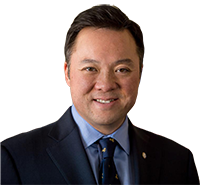Attorney General's Opinion
Attorney General, Richard Blumenthal
August 19, 1993
The Hon. William E. Curry, Jr.
State Comptroller
State of Connecticut
Office of the Comptroller
55 Elm Street
Hartford, CT 06106
Dear Mr. Curry:
This is in response to your letter of August 3, 1993 concerning the Health Care Cost Containment Committee (HCCCC) and U.S. Healthcare. Pursuant to Conn. Gen. Stat. § 5-259, you have the statutory obligation to establish group hospitalization, medical and surgical insurance coverage for state employees, retirees and others, and are authorized to enter into contracts for that purpose. In your letter you raise two questions which were subsequently further clarified by your office. First, based on the information which we have been provided, were there any improprieties in the selection process used by HCCCC of which we are aware? Second, is U.S. Healthcare entitled to be included in the state's new health benefits plan as a federally qualified HMO? For the reasons set forth below, the answer to both of your questions is no.
I.
As a consequence of the 1982 Collective Bargaining Pension Agreement (the Agreement), Public Act 83-533, which codified certain provisions of that Agreement, was adopted. Sec. 42 of that Act was codified as Conn. Gen. Stat. § 5-259a and reads, "[e]mployee health and life insurance shall be subject to a competitive selection process. The process shall be in accordance with the provisions of the collectively bargained pension agreement approved by the general assembly on June 30, 1982." Those provisions are contained in Section 9 of the Agreement, entitled "Cost Containment and Competitive Selection of Employee Insurance." This section of the Agreement established the Health Care Cost Containment Committee (HCCCC).
Section 9 contains the following references to the competitive selection process that is to be employed:
¶1. The Committee shall be responsi ble for requesting competitive proposals for employee health care and life insurance and for cost containment. This Committee may also request bids for self insurance.
¶2. The Committee shall obtain proposals forbenefits and coverage which shall be reasonably equivalent to the benefits and coverage provided active state employees prior to the effective date of this agreement. The Committee shall seek to obtain proposals which will be lower than the cost of current plans ... and which will reduce, if possible, the cost of the present employee health and life insurance coverage.
¶9. A report by the Committee with the results of the competitive process shall be submitted to the State Comptroller.
¶10. In order to assist the Committee in designating, soliciting, and evaluating health and life insurance proposals, the Committee is authorized to engage the service of an actuarial consultant ... .
¶11. The Committee shall reconvene during the 1990-91 fiscal year for the purpose of repeating this competitive selection process for health and life insurance.
Conn. Gen. Stat. § 5-259a thus requires a competitive selection process to be conducted in accordance with the Agreement. The Agreement itself does not set forth any particular procedure or process. Section 9 sets forth what is to be subject of the competitive selection process -- namely, employee health and life insurance -- but does not specify how the selection process is to be conducted. Information provided to us by the Department of Administrative Services reveals that a competitive selection process was conducted by HCCCC. According to that Department, an invitation to bid was published, proposals were received, additional information was sought and submitted, and HCCCC selected the health care providers based on the bids and information submitted.
The purpose of competitive bidding on government contracts is to prevent favoritism, collusion or fraud in awarding such contracts to the detriment of the public. 64 AmJur 2d Public Works and Contracts § 30 et seq. You have not brought to our attention any facts raising an inference of favoritism, collusion or fraud. Correspondence received by this office from U.S. Healthcare and its attorneys, likewise, has not specified any such factual data. Unless such facts are demonstrated, it must be assumed that the competitive bidding process used by HCCCC avoided favoritism, collusion and fraud, and resulted in a selection based upon substantive information submitted during that process. "Because administrative decisionmakers are afforded a presumption of honesty and integrity, unsubstantiated allegations of bias or misconduct are insufficient ... ." Ostrer v. Luther, 668 F. Supp. 724, 733 (D.C. Conn., 1987).
II.
The second issue you raise in your letter concerns U.S. Healthcare (USHC), which is currently a health benefits provider to state employees. USHC has fulfilled the requirements of 42 U.S.C. § 300e-9, commonly known as the Federal HMO Act, and is a federally "qualified health maintenance organization." USHC is an individual practice association (IPA) HMO. USHC submitted a bid under the aforementioned competitive bidding process, but was not selected by HCCCC.
The Federal HMO Act and regulations adopted thereunder extend certain rights and privileges to federally qualified HMOs. One of the federally conferred rights is the right to participate in an employer's health care plan, provided that the federally qualified HMO meets specific regulatory requirements. 42 C.F.R.§ 417.151.
The facts relevant to this issue are as follows. The State of Connecticut health benefits system currently consists of the following providers: MD Health Plan, Kaiser Permanante, Constitution Health Plan (a BC/BS subsidiary), Community Health Care Plan, Connecticare, CIGNA, U.S. Healthcare, and Physicians Health Services. The Group Health Maintenance Organization Agreements between these providers and the State provided for termination on June 30, 1993.
On May 13, 1993, Steven Weinberger, Chief, Employee Services Bureau, Office of the State Comptroller wrote each of these providers "to obtain an extension of the Agreement's terms and conditions for the period from July 1, 1993 to December 31, 1993." That extension letter stated that "as it [is] unlikely that a new plan [via HCCCC] will be implemented prior to June 30, 1993, the contract extension proposed herein has been necessitated." The letters required the providers to sign the letters indicating acceptance of the extension and return them to Mr. Weinberger by June 15. Subsequently, the providers were contacted by the Comptroller's office by telephone and requested instead to agree to an extension of their contracts only to September 30, 1993 at the same premium. Either orally or in writing, all eight agreed to the extension of their contracts to September 30, 1993, and seven agreed to maintain the same premiums. Thus, assuming for the purposes of your inquiry that this constituted a valid extension of the original contracts, all of the eight existing contracts will terminate by agreement of the parties no later than September 30, 1993. On June 1, 1993, Kelbourne J. Ritter, Senior Vice President of USHC, wrote your office rejecting the May 13, request to extend its contract through December 31, 1993 at the old rate. On June 23, 1993, Mr. Ritter again wrote your office stating, "This letter is to acknowledge U.S. Healthcare's willingness to continue the rates for state of Connecticut employees which were effective July 1, 1992, until September 30, 1993."
As a result of the HCCCC competitive bidding process, the following providers were selected: MD Health Plan, Kaiser Permanante, Community Health Care Plan, Constitution Health Care Plan (renamed CHC State Premier), and Blue Care Health Plan State Preferred (to be operated by BC/BS). New contracts with these providers will go into effect on October 1, 1993. The state is currently conducting an open enrollment period for the new providers which commenced on August 2, 1993 and ends on September 17, 1993.
On June 21, 1993 USHC wrote the Comptroller and Deputy Commissioner of Administrative Services Raymond Meany claiming entitlement to inclusion in Connecticut's new health plan by virtue of its status as a federally qualified HMO pursuant to 42 C.F.R.§ 417.152. Paragraph (a) of that section states, in part:
an HMO's request for inclusion in an employing entity's health benefits plan must be received by the employing entity or designee no more than 365 days and not less than 180 days before the expiration or renewal date of a health benefit contract.
Thus, USHC attempted to put the state on notice of its request to be included in the state's health benefits plan in the event that a health benefit contract expired or was renewed within six to twelve months of the date of its letter, that is, from December 22, 1993 to June 20, 1994.
The nine existing contracts for health benefits expire September 30, 1993. The new contracts for health benefits become effective October 1, 1993. Under 42 C.F.R. § 417.152(a), USHC could have made a timely request for inclusion in Connecticut's new health benefits plan six to twelve months prior to September 30, 1993 or October 1, 1993, i.e., between September 30, 1992 and March 30, 1993. However, USHC's request letter is dated June 21, 1993, nearly three months after the last day it could have written a timely letter, and thus failed to comply with the requirements of 42 C.F.R. § 417.152(a). Accordingly, USHC has no entitlement to inclusion in Conneticut's new health care plan.
USHC's request for inclusion in the state's health benefits plan is dated June 21, 1993. Under 42 C.F.R. § 417.152(d) and (e), an employer is required to respond in writing to a federally qualified HMO's request for inclusion no later than 60 days after the receipt of the request. As demonstrated, supra, USHC's request failed to meet the time limitations of 42 C.F.R. 417.152(a). This is addressed in paragraph (e) of that section as follows:
If the request for inclusion does not meet the requirements of paragraphs (a) through (c) of this section, the employing entity is not required to include the HMO alternative in its employees' health benefits plan under e 417.154 until the HMO makes its request in accordance with those paragraphs. In such a case, the employing entity or its designee shall, within 60 days after receipt of the request, notify the HMO in writing of the basis for its conclusion that the request does not meet the requirements of paragraphs (a) through (c) of this section.
Accordingly, you or your designee are required by federal regulation to notify USHC by August 20, 1993 of the conclusion reached in Part II of this opinion that USHC's request for entitlement failed to meet the time limitation of 42 C.F.R. § 417.152(a). For your information, Deputy Commissioner of Administrative Services Raymond Meany responded to the request for inclusion which USHC sent to him by similarly notifying USHC that it had not filed a timely request for inclusion under the applicable federal regulation.
In conclusion, we state that we are aware of no legal impediment that prevents you from fulfilling your statutory duty to enter into the contracts for the provision of group hospitalization, medical and surgical health benefits plans for state employees, retirees and others under the state's new benefits plan.
Very truly yours,
RICHARD BLUMENTHAL
ATTORNEY GENERAL
Robert A. Whitehead
Assistant Attorney General
RB/RAW/eh


